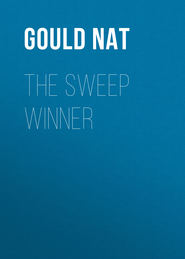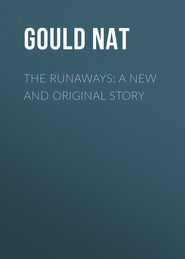По всем вопросам обращайтесь на: info@litportal.ru
(©) 2003-2024.
✖
The Second String
Настройки чтения
Размер шрифта
Высота строк
Поля
"So do I," replied Fred. "They are the sort of men we want about us; there's too much of the money-making about most of them, and when they get a haul it's precious little of it comes our way."
"Then you find your jobs not all pleasure and profit?" said Bricky smiling.
"It's anything but that. The boss is all right, a real good sort, but some of the owners are desperate skinflints."
"You'll find a difference with the owner of Lucky Boy if he wins a race," said Bricky. "I'm open to bet he gives tips all round if he has a win, and liberal ones too."
"Do you know him?"
"Yes, I rode a race or two for him years ago, but I have not seen him since he went away. Mr. Redland I only met quite accidentally as he was coming to see the boss, but I am sure he is a genuine good fellow. It was he gave me the chance to look after Lucky Boy."
The new arrival at Kenley's stables went out with the team to exercise at Randwick next morning, and Jack Redland and Barry Tuxford were on the course. After mutual greetings, the trainer suggested Jack should mount Lucky Boy and give him a canter, and then a fast mile spin with a couple of others.
Nothing loath, Jack was soon ready, and Joel Kenley's practised eyes quickly saw he had a good seat. The appearance of a strange rider, more especially an amateur, caused some comment amongst the lookers on, and there were many inquiries to learn who he was.
Lucky Boy moved somewhat stiffly, as this was his first exercise canter after the voyage, but it quickly wore off, and by the time the trainer gave instructions for the gallop the horse was eager to be off. The going was good, and Jack admired all the surroundings – the hills, the houses at Randwick, and the distant view of famous Botany Bay.
The horses sent out to accompany Lucky Boy were not of a very high class, but both had won handicaps at Moorefield, Canterbury, and elsewhere. Jack soon found he would not have much difficulty in beating them, and this he did comfortably and with judgment.
As they pulled up, Joel Kenley said to Barry Tuxford —
"I think you have a very fair horse, and I am sure your friend is a good rider. I shall have no hesitation in putting him up when I have an opportunity."
This pleased Barry, who said —
"I hope to win a good race with Lucky Boy, and I know Jack will be delighted to have a winning mount."
The boys who had ridden with Jack were not long in telling their stable companions that the new chum was "no slouch," and that he could ride "above a bit." As to Lucky Boy, they were not much impressed with his merits, as the horses they had ridden against him were not first class.
"The next thing we have to do is to purchase the second string," said Jack smiling.
"And I think I have hit upon the very horse for you if he can be bought," replied the trainer. "You see that dark brown over there cantering alongside Bowery?"
They looked in the direction pointed out, and saw the horses he alluded to.
"That's Black Boy. He's very useful; five years old, thoroughly reliable, no vice, and an excellent schoolmaster. If they'll sell him he is just the horse for you. He can win a welter race and you can ride him yourself."
They watched the horse as he went past, and Jack was favourably impressed. There was a "cut and come again" look about him that argued well for his courage.
"What is he worth?" he asked.
"They are sure to ask a stiff price if they know we want him. He's not in very good hands, and I have had my doubts about his running on more than one occasion lately. I am under the impression they have been bottling him up, and if I am correct, you might get a better race out of him than many people would anticipate. No blame would attach to us; the change of stables would account for the reversal of form; but, of course, if it is as I surmise, it will put his price up. Black Boy is honestly worth about three hundred; they will probably ask five, and you may get him for something over four hundred."
"Will you try and buy him?" asked Jack.
"I had better keep out of it. If they think I want the horse they will not sell. I am not in their good books, and have no desire to be; they are not my class, but that has nothing whatever to do with the merits of the horse."
"No, of course not," answered Jack, "but can you get anyone to approach them for us?"
"Why not let me try?" said Barry, laughing. "I generally succeed in my undertakings, and I fancy I can manage it. They'll probably take me for a greenhorn."
The trainer laughed as he replied —
"They will not do that."
"There's very little of the greenhorn look about you," said Jack, "but try if you wish, although I do not know how you will work it."
"Leave that to me," replied Barry. "I can always find out ways and means of becoming acquainted with anyone I wish to know."
It was decided that negotiations for the purchase of Black Boy should be left in Barry's hands, and he was not long in making a move in the desired direction.
The next day he told Jack he knew Abe Moss, the owner of the horse, that he was introduced to him in Tattersall's, and that in the course of a day or two he would broach the question as to whether Black Boy was for sale.
"I have given a hint that I wish to buy one or two horses, and I saw Moss took it; he's a keen hand, and thinks he'll make a bit out of me. We shall see," added Barry, with a wink.
CHAPTER TWENTY-SECOND
BLACK BOY'S OWNER
Whatever Abe Moss's opinion of Barry Tuxford might be, that astute gentleman had his own way, and purchased Black Boy for four hundred and fifty pounds. Jack Redland was satisfied, so was Joel Kenley, who remarked that it was quite evident Barry Tuxford was fully equal to half a dozen men like Abe Moss.
"I'm not so sure of that," said Barry. "He's sharp enough, and I fancy he thinks he has got a good price for the horse. He asked me if I had any objections to letting him know when the horse was going out to win, and I said none at all, for the first time he started he would do his best."
"And what did Moss say?" asked the trainer.
"He smiled and looked cunning, as much as to say —
"'You need not tell that fairy tale to me, you are not the man to run a horse out when the money is not on.'"
"I think that is probably correct," laughed Joel; then seeing Barry's countenance change, he added quickly —
"I mean what Moss thought, not that his opinion was correct."
Black Boy was handed over to Barry Tuxford, and consigned to the care of Bricky Smiles, at Kenley's stables. Bricky commenced to feel important again, he had two horses to look after, and this was a move in the right direction.
Joel Kenley was amused at him, and satisfied with his work in every way, in fact he acknowledged to Jack that a better man could not have been found for the job.
"It has given him a new lease of life," said the trainer, "and he'll be quite a different man in a few weeks."
Joel Kenley was not long in ascertaining whether his surmise as to Black Boy having been "bottled up" was correct. He tried him well, and was surprised at the result. He kept his knowledge to himself until he had given the horse a "dust up" with Lucky Boy. Again the result was a surprise, for the Western horse won rather easily at level weights.
Joel was a trifle puzzled. He had discovered that Black Boy would probably be weighted at a stone below his proper form in the next big handicap, and he was quite sure Lucky Boy would be leniently treated, as handicappers usually, and sometimes foolishly, regarded these "outsiders" with a contempt that was not deserved.
The trainer chuckled quietly to himself as he contemplated the bringing off of one or two good coups. He dearly loved the excitement attending such proceedings, and although he would have scorned to order a horse to be "pulled," he had no objections to benefit by the hoodwinking of a handicapper.
Somehow Joel regarded handicappers as his natural enemies, and had frequently fallen foul of them, and asked for an explanation of the weights placed upon his horses. On several instances it was acknowledged that he had good grounds for his grievance, and this did not improve the temper of the handicappers.
Although his horses ran in and out, as most horses will, there was no suspicion against him, and his reputation for honesty stood high. It was different with Abe Moss, who was regarded as a very smart customer indeed, and when it became known that a new patron of Joel's stable had purchased Black Boy there was a general winking of eyes, and nodding of heads, amongst the "knowing ones."









